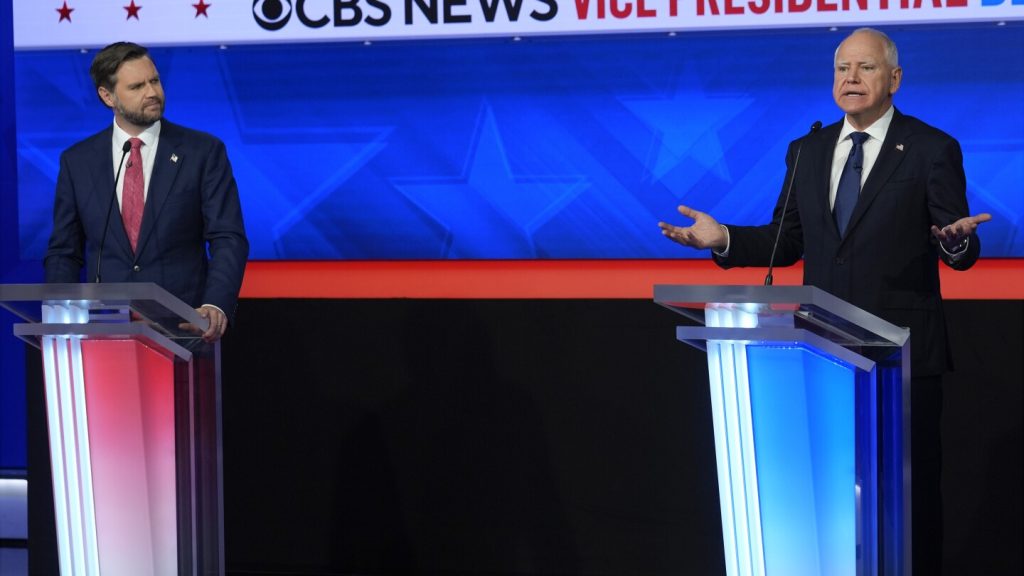The first and only vice presidential debate between Ohio Senator JD Vance and Minnesota Governor Tim Walz was characterized by an orderly and policy-focused dialogue. Moderated by CBS News’ Margaret Brennan, the debate saw moments of agreement and disagreement between the two candidates. Vance and Walz expressed mutual agreement on some issues, while also driving home their individual messages. One of the most notable moments came when Brennan intervened after a tense exchange between the candidates regarding immigration, noting that the audience couldn’t hear them due to muted microphones.
During the debate, Walz acknowledged his son’s experience with gun violence, prompting Vance to apologize and express sympathy. Walz also addressed discrepancies in his travel history to Hong Kong in 1989, admitting to misspeaking on the issue. The candidates also discussed issues such as housing affordability, gun violence, and reproductive rights, offering differing viewpoints on how these issues should be tackled at the state level. Walz criticized former President Trump’s record on abortion, while Vance stressed the importance of Republicans earning the public’s trust on reproductive rights.
The debate also delved into the aftermath of the January 6th riot at the U.S. Capitol, with Walz pointing to Trump’s rhetoric and refusal to accept the 2020 election results as contributing factors to the division in politics. Walz emphasized the need to peacefully debate and discuss controversial issues in the public square. Vance, on the other hand, focused on looking towards the future and engaging in peaceful dialogues to address election concerns. The candidates’ differing stances on Trump’s actions in contesting the election highlight the continued polarization in American politics.
Overall, the vice presidential debate provided a platform for Vance and Walz to showcase their policies and engage in meaningful discussions on crucial issues facing the nation. While both candidates expressed areas of agreement and disagreement, the debate remained civil and focused on policy matters. From immigration to abortion to gun violence, Vance and Walz offered varying perspectives on how to address these complex issues, highlighting the diversity of opinions within the political landscape. Ultimately, the debate served as an opportunity for voters to gauge the candidates’ readiness to serve as the next president’s second in command.















